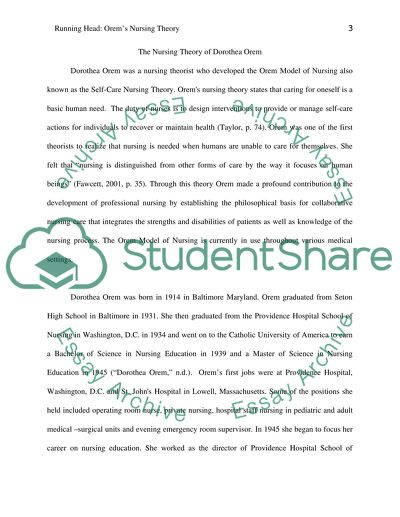Cite this document
(“The Nursing Theory of Dorothea Orem Research Paper”, n.d.)
Retrieved from https://studentshare.org/nursing/1445381-the-nursing-theory-of-dorothea-orem
Retrieved from https://studentshare.org/nursing/1445381-the-nursing-theory-of-dorothea-orem
(The Nursing Theory of Dorothea Orem Research Paper)
https://studentshare.org/nursing/1445381-the-nursing-theory-of-dorothea-orem.
https://studentshare.org/nursing/1445381-the-nursing-theory-of-dorothea-orem.
“The Nursing Theory of Dorothea Orem Research Paper”, n.d. https://studentshare.org/nursing/1445381-the-nursing-theory-of-dorothea-orem.


